 Types of Vitamin B Deficiencies
Types of Vitamin B Deficiencies
There are a variety of health problems that can be attributed to a deficiency in these essential vitamins. The B vitamins all work together in the body to perform many important functions, including energy production, the growth and function of cells throughout the whole body, the production of neurotransmitters and hormones, the formation of red blood cells, and more. Because all of the B vitamins are water soluble, this means that they can’t be stored in the body for prolonged periods of time. Most B vitamins leave the body relatively quickly, though some (like vitamin B6) may be stored in the body for up to 30 days after ingestion. Other vitamins (like vitamin B3) are cleansed from your system within less than an hour! Nevertheless, because B vitamins leave the body quickly in most cases, it’s important to eat/take plenty of them so that you don’t develop a deficiency.
Some vitamin B deficiencies are more common/severe than others. The important thing to remembery however, with all vitamin B deficiencies is that in most cases the symptoms can be reversed simply by taking a vitamin B supplement or by receiving a B vitamin injection or intravenous therapy with B vitamins. Once your body has what it needs again, it can start repairing whatever damage there might be and the symptoms of disease will gradually reverse. However, keep in mind that the longer a deficiency has been present, the more likely it is that there will be some lasting effects (these effects differ from person to person, and no one is the same, so different people may experience different results after vitamin supplementation).
What is Vitamin B1 Deficiency? The Main Types of Beriberi
Vitamin B1 deficiency is known as beriberi. There are three primary kinds of beriberi: wet beriberi, dry beriberi, and gastrointestinal beriberi. The three kinds of thiamine deficiency manifest in different ways in the body; wet beriberi manifests in the form of cardiovascular problems, while dry beriberi tends to produce neurological issues. Gastrointestinal beriberi is as it seems, it’s related to problems with digestion and the gastrointestinal system.Since thiamine is a water soluble vitamin, just like the rest of the B vitamins, it’s cleared from your body relatively quickly (within 12 hours after taking a supplement or eating vitamin B1 in food). Thus, we have to regularly eat enough thiamine in our diet and/or supplement with it to ensure that our thiamine levels are adequate. Symptoms of mild vitamin B1 deficiency include:
- Headache
- Nausea
- Fatigue
- Irritability
- Abdominal discomfort
- Depression
- Lack of focus
- Pins-and-needles sensations
Vitamin B1 deficiency can be caused by a variety of different factors, but some of its primary causes include alcoholism (or excess alcohol consumption), previous or current infection with HIV, illnesses that inhibit nutrient absorption in the intestinal tract (such as Candida overgrowth or SIBO), liver disease/malfunction, and metabolic dysfunction. Women who are pregnant or nursing may also have an increased need for vitamin B1 (which can lead to deficiency if this need isn’t met).
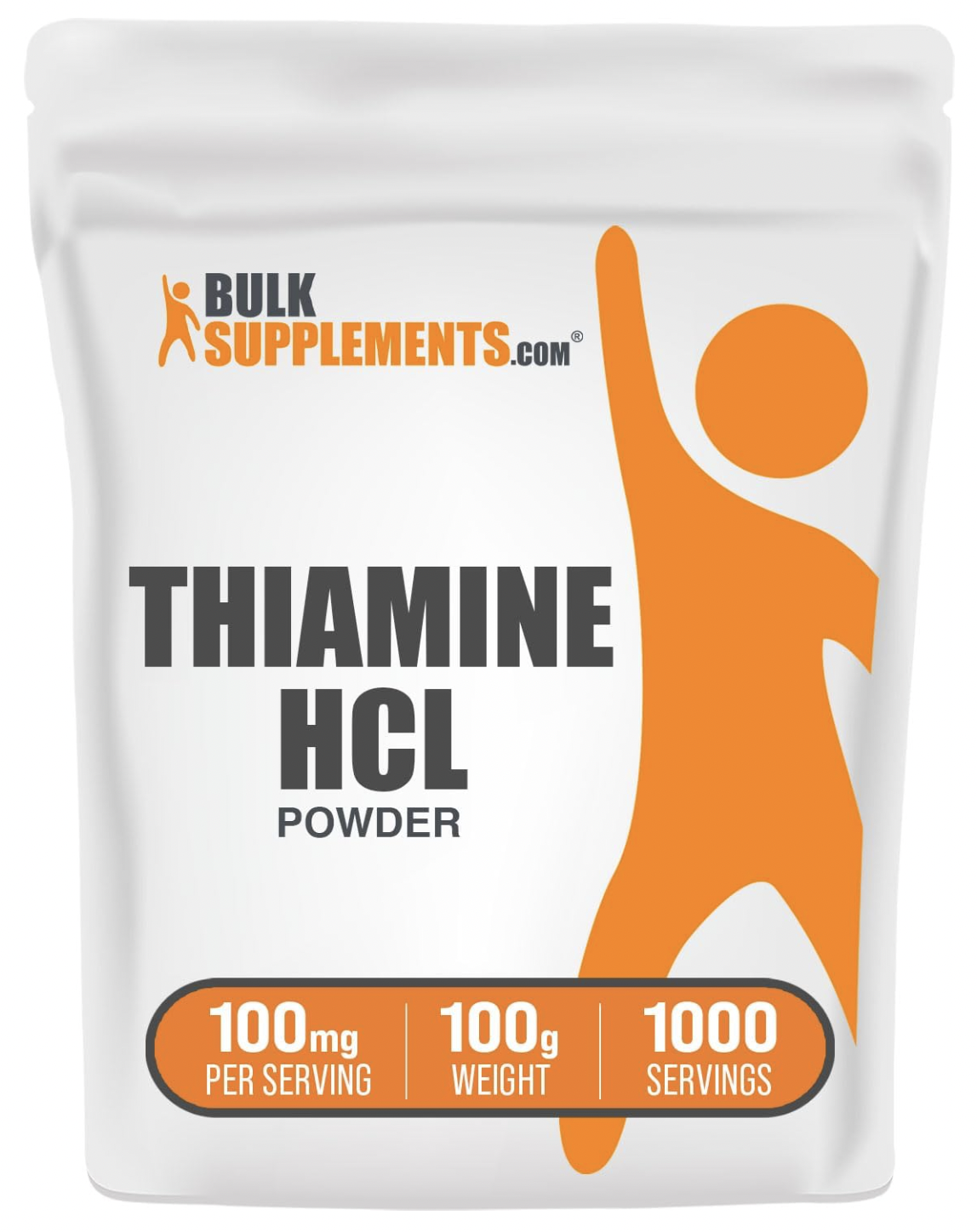
Vitamin B2 (Riboflavin) Deficiency: Ariboflavinosis
Vitamin B2, otherwise known as riboflavin, is a woefully ignored B vitamin. The vitamin B2 deficiency disease is known as Ariboflavinosis, and is characterized by initial symptoms like those listed below:- Fatigue
- Tired eyes
- Light sensitivity
- Throat swelling and soreness
- Digestive problems
- Cracked or sore corners of the mouth
- Swollen, magenta-colored tongue
- Slowed growth (in children and adolescents)
Some of riboflavin’s primary uses in the body include its role as an antioxidant and in the production of red blood cells, as well as its responsibility for converting vitamin B6 and folate (vitamin B9) into forms that can be utilized by the body. Without enough vitamin B2, a person may also very well develop vitamin B6 and vitamin B9 deficiencies as well since their body won’t be able to use any of the B6 or B9 that they take in from food or supplements. Put another way, vitamin B2 deficiency plays a vital role in three vitamin deficiencies and the possible subsequent development of disease as a result of the body not having enough of these nutrients.
Elderly individuals and alcoholics are at a higher risk of developing a vitamin B2 deficiency. The vitamin is cleansed from the body after approximately 24 hours, so consuming riboflavin either in supplement form or in food every 24 hours or so is necessary to ensure appropriate levels, especially if a person is deficient or at risk of becoming deficient.
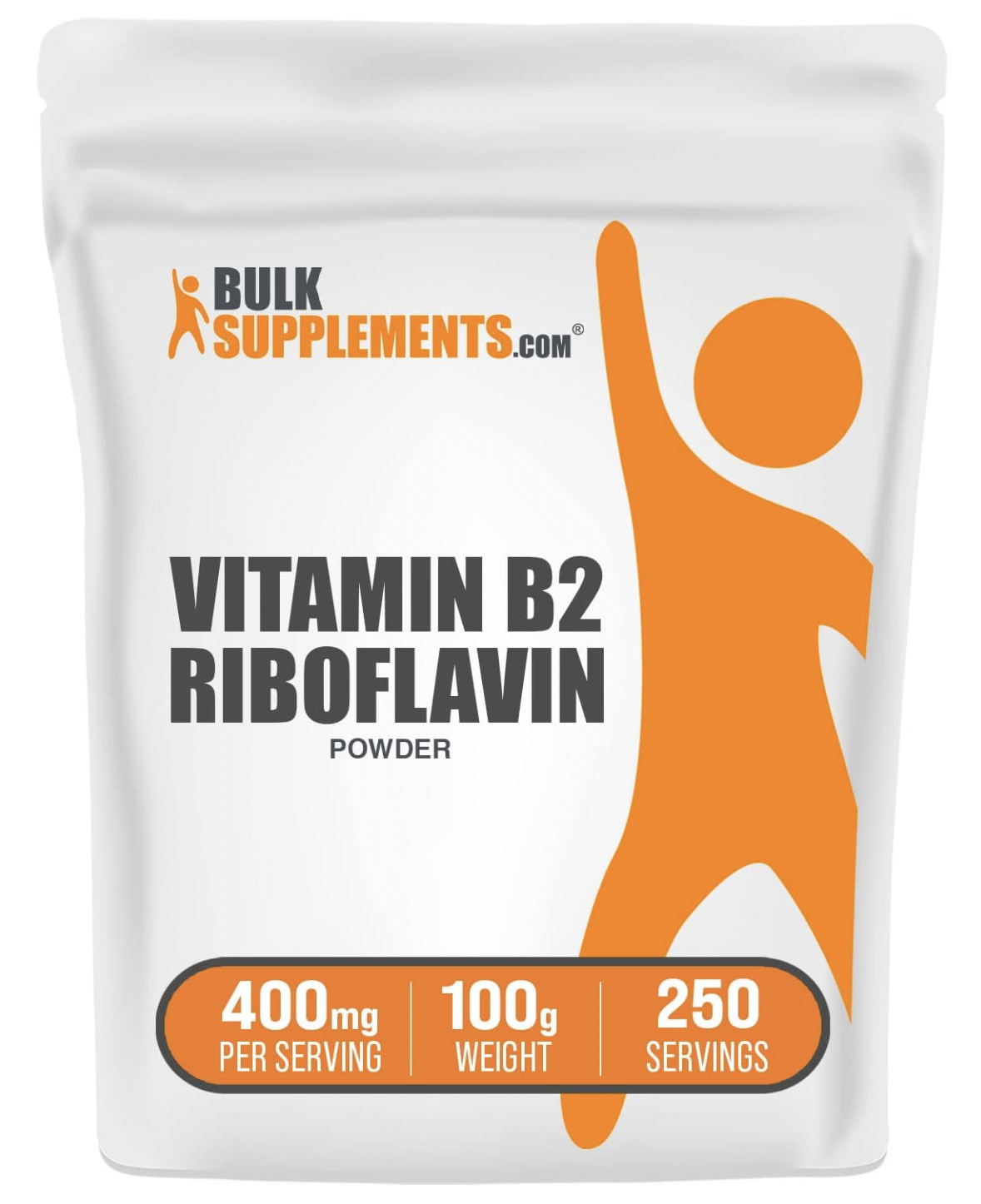
Click here to buy vitamin B2 / Riboflavin.
Vitamin B3 (Niacin) Deficiency: Pellagra
Vitamin B3 deficiency is otherwise known most commonly as pellagra, which includes symptoms such as light sensitivity, hair loss, dermatitis, insomnia, mental confusion, aggression, weakness and/or lack of coordination, dementia, and dilated cardiomyopathy. However, what few people are aware of is that deficiency in this B vitamin can lead to not only the development of pellagra, but also of:- Schizophrenia
- Schizoaffective disorder
- Arthritis
- Learning and behavioral disorders in children (and adults)
- Cardiovascular disease
- Chronic fatigue syndrome
- Trigeminal neuralgia
- Bipolar disorder
- Delirium disorders
- Post-electroconvulsive confusion
Different people may require different levels of niacin (and other B vitamins too, for that matter) to avoid becoming deficient in this vitamin. Some people may have to take particularly high doses of vitamin B3 in order to correct the conditions caused by this deficiency, while other people may need to take significantly lower doses to reap the same benefits. Regardless, vitamin B3 has been proven through numerous studies to be safe even in doses of up to 20,000mg or 40,000mg per day in the treatment of some diseases. For people treating disease, niacin may be taken starting at 3000mg, and then an assessment of improvement (or lack thereof) can be made between 2-4 weeks after starting treatment.
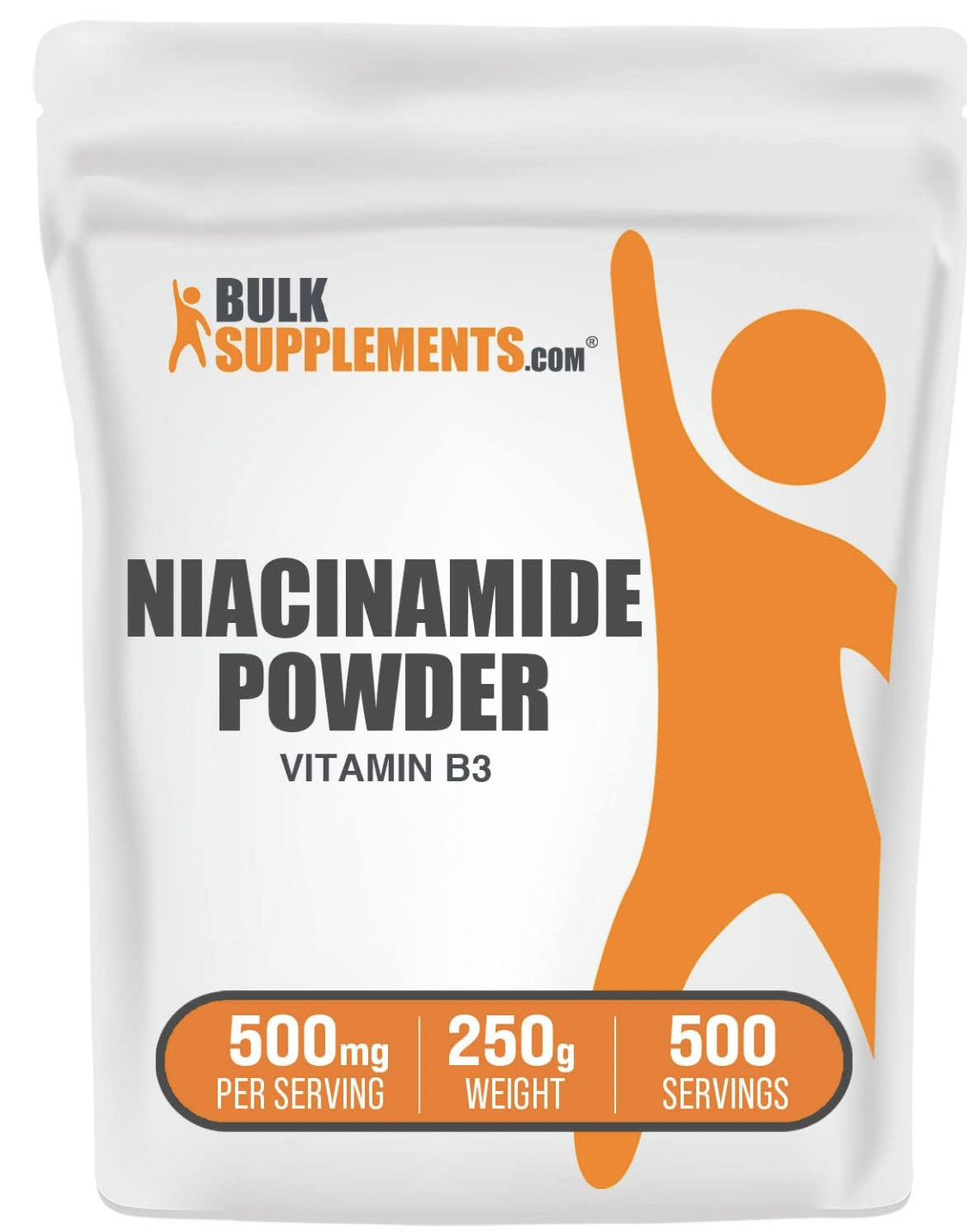
Click here to buy vitamin B3 / Niacinamide.
Vitamin B5 (Pantothenic Acid) Deficiency
Generally speaking, vitamin B5 deficiency isn’t considered to be a very common vitamin deficiency in developed countries. This is because vitamin B5 is found in a large variety of foods, so people who are eating a healthy, balanced diet are likely to be getting plenty of this essential nutrient. However, deficiencies can occur, particularly in people who have other deficiencies as well or who have an illness that inhibits the absorption of pantothenic acid.Vitamin B5 is required in order for the body to break down and build fatty acids and perform various essential metabolic functions. It is also necessary to create Coenzyme A (CoA). Symptoms of vitamin B5 deficiency include:
- Muscle cramps
- Irritability
- Restlessness
- Fatigue
- Headaches
- Nausea, vomiting, and/or stomach cramps
- Trouble sleeping
- Unusual sensations (such as numbness or burning) in the hands and feet
Pantothenic acid is present in all living cells, both in plants and animals. Therefore, almost all foods have some quantity of vitamin B5, though the amount of vitamin B5 that’s present in different foods is variable. Some of the best dietary sources of vitamin B5 include chicken, organ meats, grass fed beef, avocados, mushrooms, nuts and seeds, eggs, brown rice, oats, and broccoli, to name a few. Though everyone should be eating a diet that includes at least some of these foods, people who are deficient in vitamin B5 may need to make dietary changes in addition to taking a vitamin B5 supplement in order to correct the deficiency.
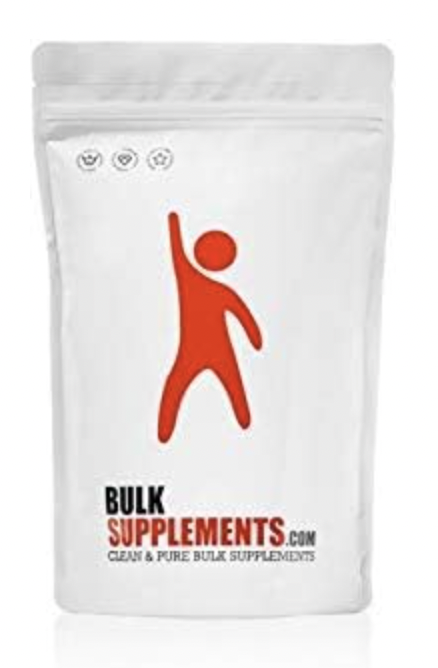
Click here to buy vitamin B5 / Pantothenic Acid.
Vitamin B6 (Pyridoxine) Deficiency: Vitamin B6 Anemia
A deficiency of vitamin B6 doesn’t usually occur on its own; usually, vitamin B6 anemia occurs in conjunction with a deficiency in another nutrient, specifically in cases where a person is already deficient in either vitamin B12 or folic acid (vitamin B9). People with kidney disease, autoimmune inflammatory and intestinal disorders (like Chron’s disease, arthritis, etc.), or alcoholics are at a higher risk of developing a deficiency of this vitamin due to absorption problems. Mild deficiencies in pyridoxine may not produce symptoms, but longer term or more severe forms of vitamin B6 anemia may produce symptoms such as:- Lowered immunity
- Depression
- Confusion
- Skin problems
- Microcytic anemia (which leads to the organs and tissues in the body not getting enough oxygen, thus causing a waterfall of other problems)
Vitamin B6 plays a number of crucial roles in the body. Specifically, it’s (partially) responsible for the breakdown of proteins, fats, and carbohydrates, as well as the management of appropriate homocysteine levels and healthy immune and brain function. Homocysteine levels that are especially high can lead to heart problems, so vitamin B6’s responsibility in managing this amino acid’s levels is vital for ensuring heart health. Low levels of vitamin B6 can lead to higher levels of homocysteine, thus causing a higher risk of cardiovascular disease (and the problems that come along with it, like heart attacks and stroke).
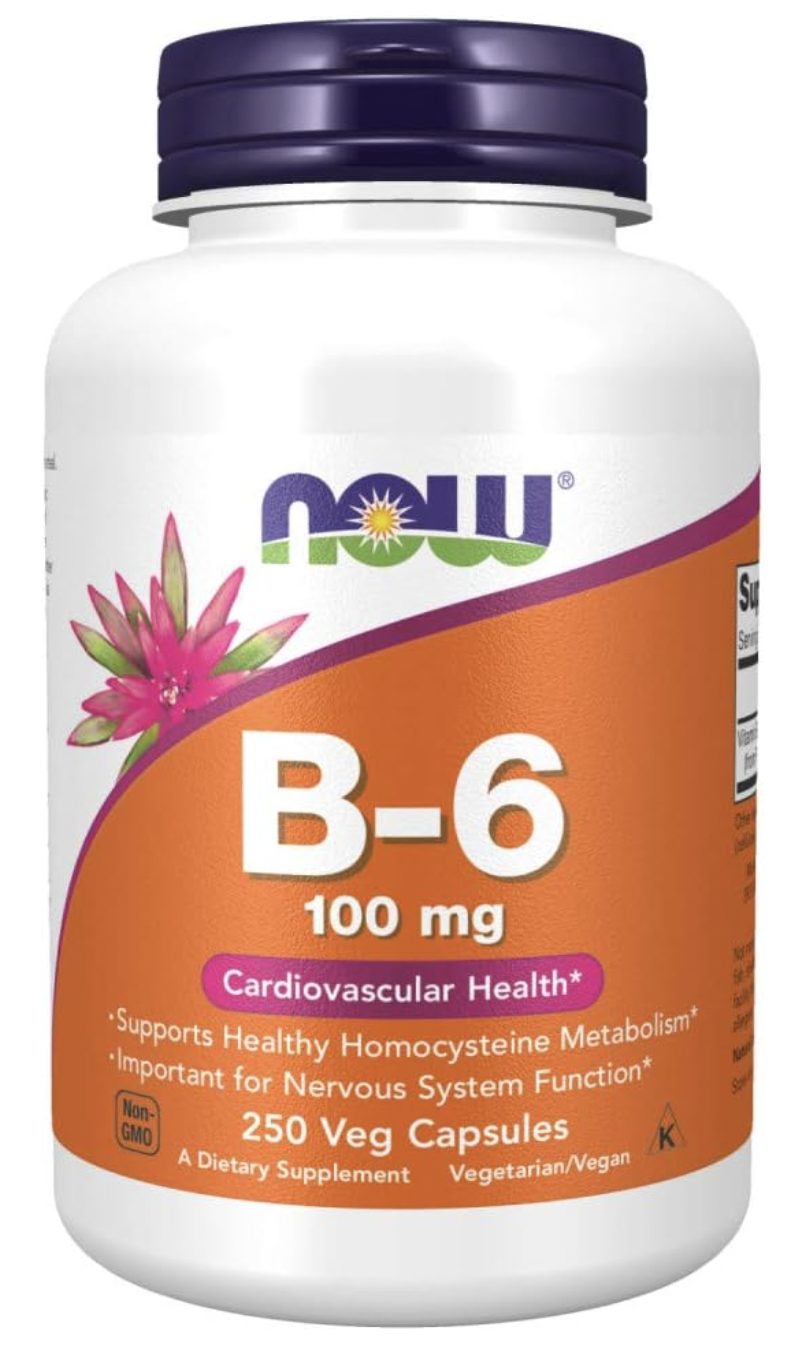
Vitamin B7 (Biotin) Deficiency
Vitamin B7, otherwise known more commonly as biotin, is necessary in order for the body to break down carbohydrates, fats, and proteins from food. It also regulates gene expression and cellular signals. Though it’s uncommon for individuals with a healthy diet to develop biotin deficiency, people who eat a common western diet high in processed foods are somewhat more likely to be low on vitamin B7 (and the other B vitamins too).Alcoholics or people who consume higher amounts of alcohol are at a higher risk of developing vitamin B7 deficiency since alcohol interferes with absorption of this vitamin. People with Crohn's disease or other diseases that cause absorption problems are also at a higher risk. Taking antibiotics or anti-seizure medications over a long period of time can also lead to biotin deficiency since these medications deplete biotin levels and (in the case of antibiotics) destroy bacteria in the gut that naturally produces biotin. Approximately one-third of women who are pregnant are also more likely to be somewhat deficient in vitamin B7.
Some of the most commonly known symptoms of biotin deficiency include thinning hair, brittle nails, and scaly skin and/or skin rashes, specifically around the eyes, nose, mouth, and anus. There are other symptoms though, too, which may include:
- Conjunctivitis
- Skin infections (due to lowered immunity and lowered skin health)
- Seizures
- Depression
- Lethargy
- Hallucinations
- Paresthesia (a “pins-and-needles” sensation in the extremities)
These symptoms tend to start slowly and build up gradually over time. Again, note that people who eat a healthy diet with lots of fresh produce, whole grains, and grass-fed meats are significantly less likely to develop a biotin deficiency than people who eat a diet that consists of primarily highly processed food (no matter whether those foods are fortified are not).
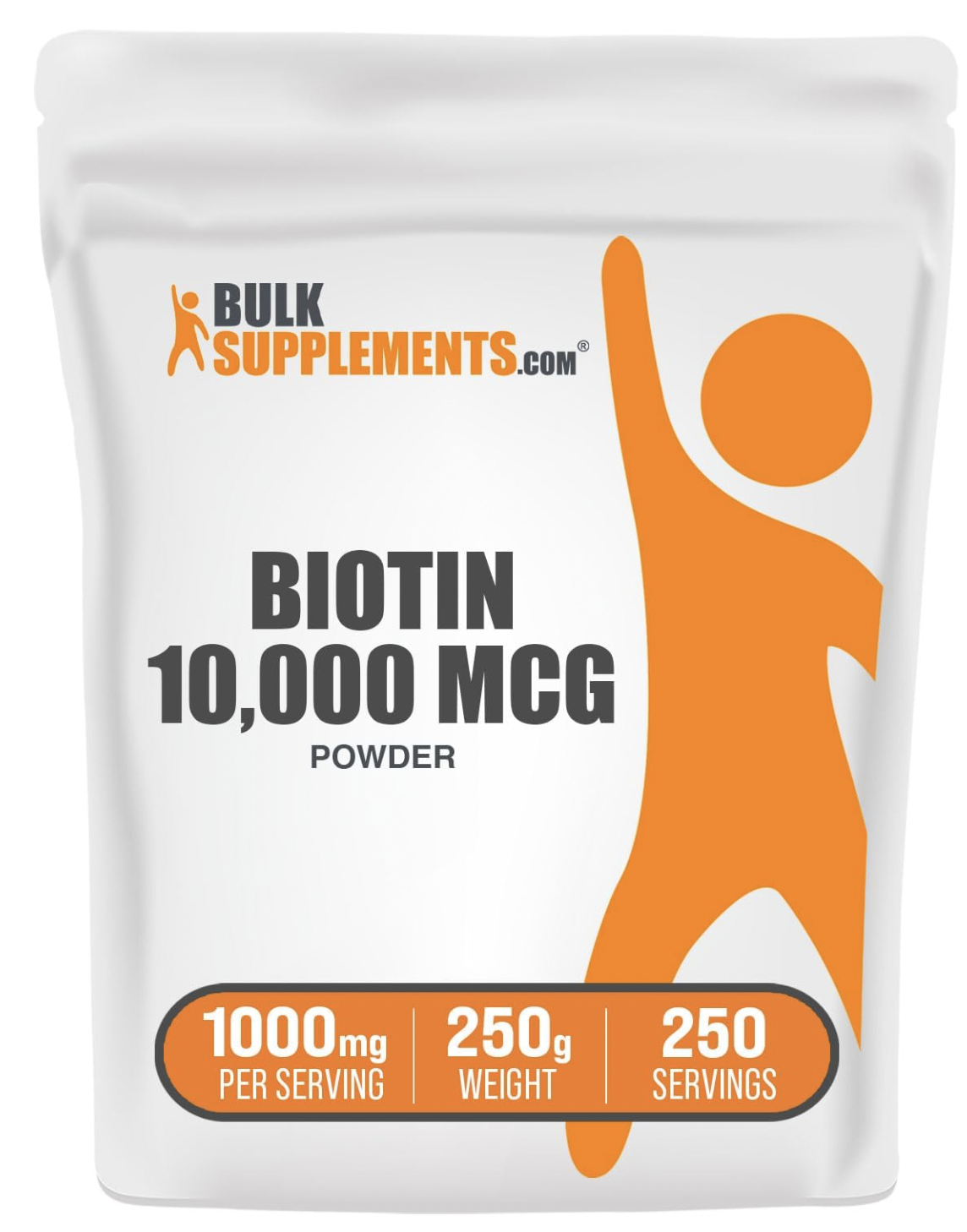
Click here to buy vitamin B7 / Biotin.
Vitamin B9 (Folate/Folic Acid) Deficiency: Folic Acid Deficiency Anemia
Most people are aware that folate is an absolutely essential vitamin for women who are trying to conceive or who are pregnant, but the importance of vitamin B9 doesn’t stop after birth! Folate is necessary for the formation of DNA and RNA, the construction of healthy red blood cells, and for the breakdown and metabolism of proteins and amino acids. It is also necessary for breaking down homocysteine, an amino acid that can lead to cardiovascular disease if it’s present in high amounts.The symptoms of vitamin B9 deficiency may include:
- Weakness
- Fatigue
- Shortness of breath
- Difficulty concentrating
- Irregular heartbeat
- Mouth sores
- Pale skin
- Hair loss
- Megaloblastic anemia (decreased blood cell production, and where the blood cells that are produced are larger than normal)
Like with the other B vitamins, alcoholics are more likely to be deficient in vitamin B9. Disorders such as IBS, Crohn’s disease, or celiac disease may interfere with the absorption of this vitamin, as can surgeries on the digestive system or medications that reduce the normal amount of acid in the stomach. Pregnant women have a generally higher need for folate. In fact, the need for folate doubles during pregnancy to provide the necessary amount for the fetus to develop and for the mother to still have adequate levels for her own processes.
Vitamin B9 is found in a variety of foods, including dark leafy green vegetables, whole grains, beans and legumes, eggs, and some nuts and seeds, to name a few. Thus, again, people eating a healthy diet likely consume adequate levels of vitamin B9 in their daily meals. However, individuals eating primarily processed foods (with or without fortification) may harbor low level deficiencies.
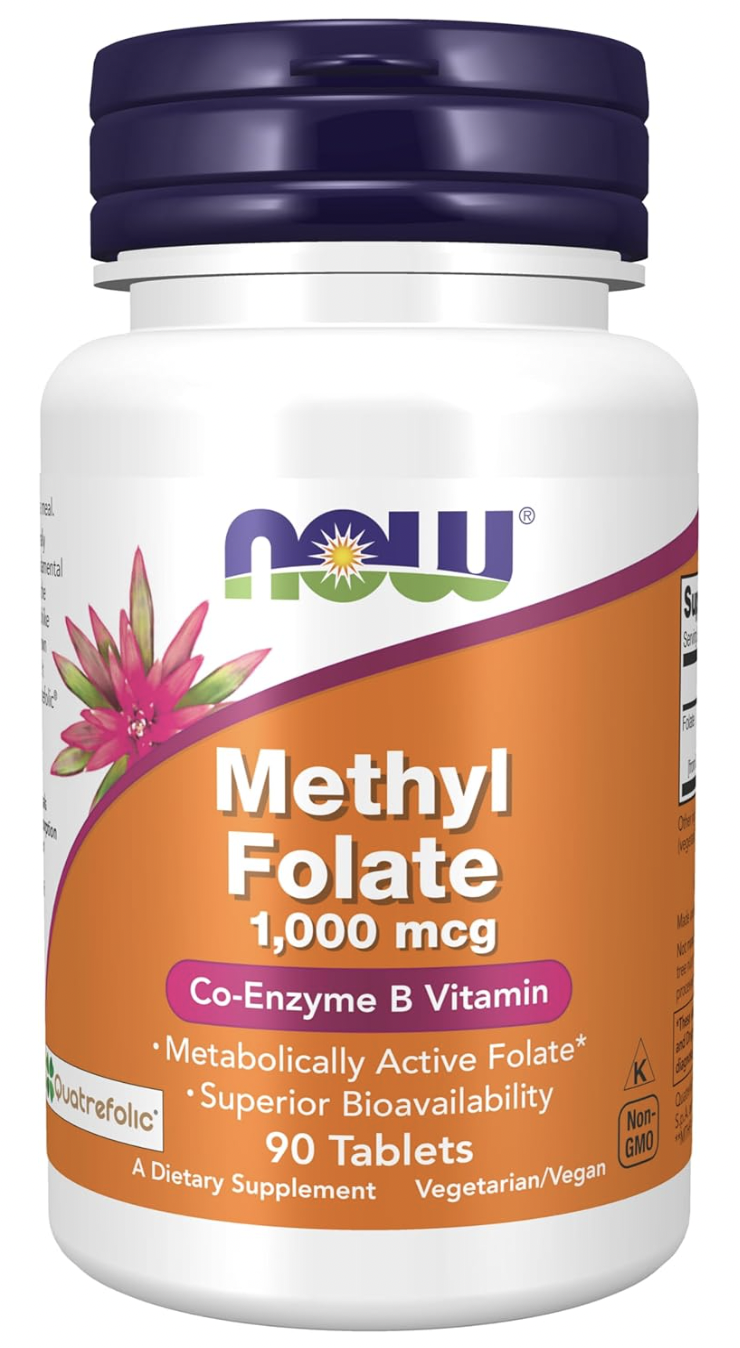
Click here to buy vitamin B9 / Methyl-Folate.
Vitamin B12 Deficiency: Vitamin B12 Anemia
Vitamin B12 deficiency is, unfortunately, becoming more and more common as more and more people choose to follow a vegan or vegetarian diet. Contrary to popular belief, the only good nutritional sources of vitamin B12 are in animal products (there are some obscure plants that may contain vitamin B12, like nori seaweed, but even still, these plants don’t contain anywhere near enough vitamin B12 to warrant exclusion of animal products). And no, nutritional yeast doesn’t contain enough vitamin B12 (most of it evaporates within a few days after you open the package if it was present at all). So unless you’re getting a yearly vitamin B12 injection, if you follow a vegan or strict vegetarian diet with very few animal products, you’re very likely to have a vitamin B12 deficiency.Some of the symptoms of vitamin B12 deficiency in adults include:
- Memory loss
- Confusion
- Depression/Anxiety/Irritability (and other mood-related problems)
- Fatigue
- Weakness
- Dementia
- Pernicious anemia
- Megaloblastic anemia
- Seizures
- Nerve damage (causing numbness or tingling in the extremities)
- Headaches
- Heart palpitations
- Loss of appetite
- Shortness of breath
- Gastrointestinal problems
People over age 50 are not able to absorb vitamin B12 in the digestive tract as efficiently as can younger people, so individuals over 50 should try to get a yearly injection of vitamin B12 in order to ensure that they’re getting an adequate amount of this vitamin (regardless of whether or not they follow a diet with animal products).
Some other notable causes of or contributing factors in vitamin B12 deficiency include:
- Hyperthyroidism
- Lymphoma
- Nitric oxide exposure
- HIV
- Scleroderma
- Crohn’s disease and Whipple’s disease
- Alcoholism
- Partial gastrectomy
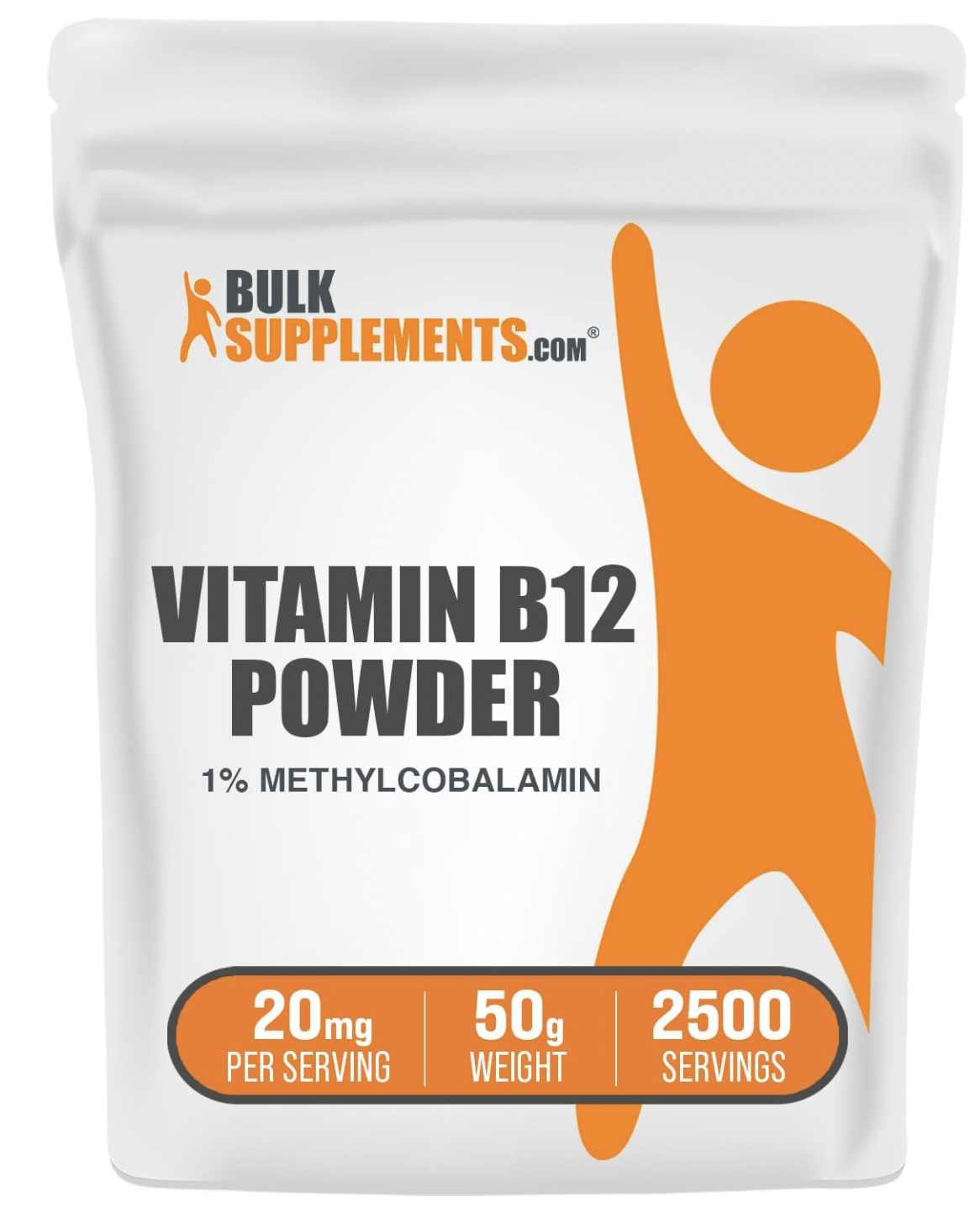
Click here to buy vitamin B12 / Methylcobalamin.
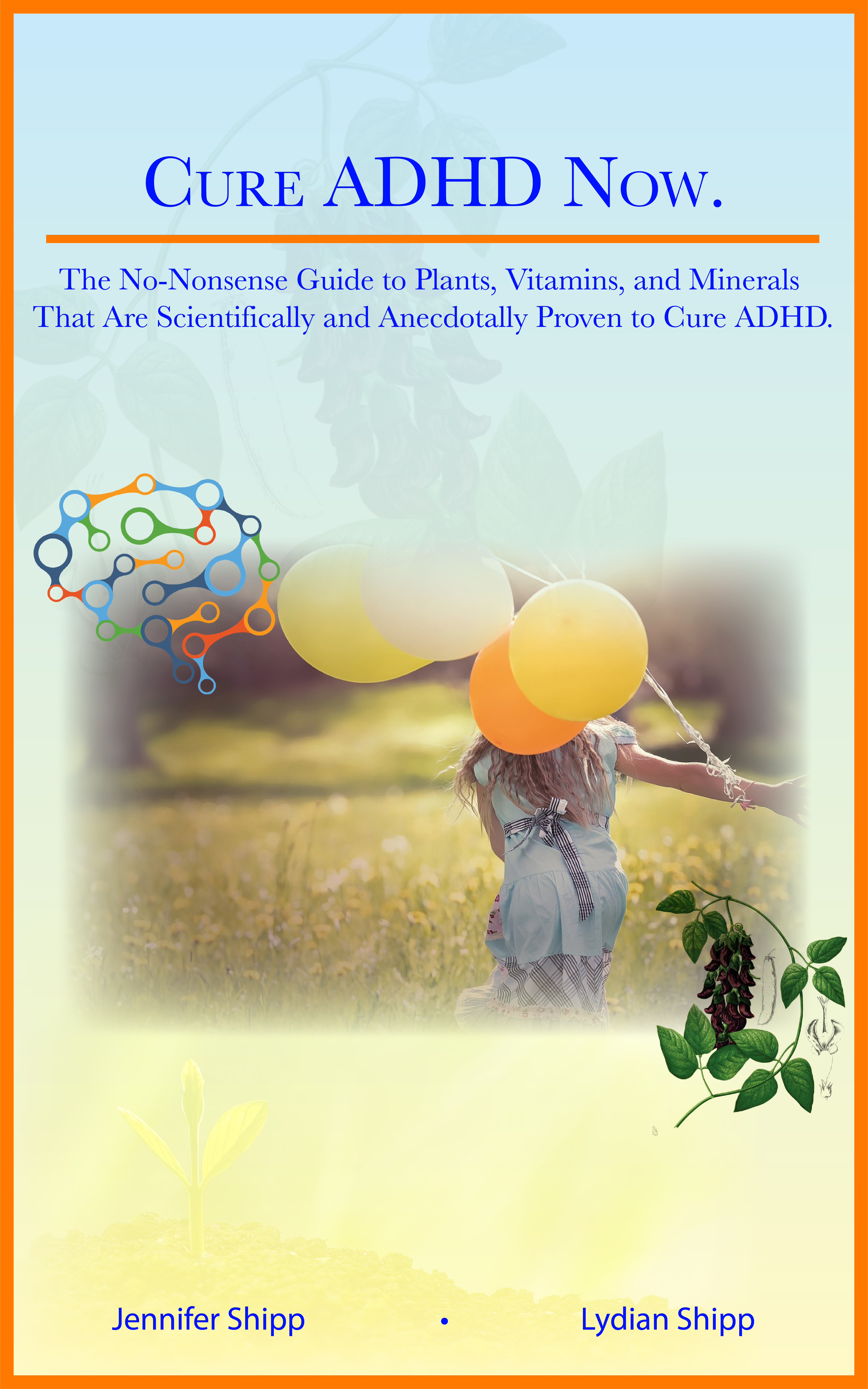
Cure ADHD Now: The No-Nonsense Guide to Plants, Vitamins, and Minerals That Are Scientifically and Anecdotally Proven to Cure ADHD

Related Posts: https://alivenhealthy.com/2022/02/02/vitamin-b1-deficiency-symptoms-the-connection-between-dry-beriberi-and-guillain-barre-syndrome/ https://alivenhealthy.com/2020/02/10/vitamin-b12-deficiency-what-every-american-needs-to-know/ https://alivenhealthy.com/2019/05/13/vitamin-b17-laetrile-amygdalin/ https://alivenhealthy.com/2021/11/19/vitamin-b15-pangamic-acid-vitamin-b15-long-haul-covid-treatment/ https://alivenhealthy.com/2021/04/28/vitamin-c-b-complex-magnesium-methylene-blue-mucuna-and-nac-for-parkinsons-and-lewy-body-dementia/ https://alivenhealthy.com/2021/03/03/vitamin-k2-and-vitamin-d3-for-bone-remineralization-and-cardiovascular-health-cure-osteoporosis-and-arteriosclerosis/
Resources:









